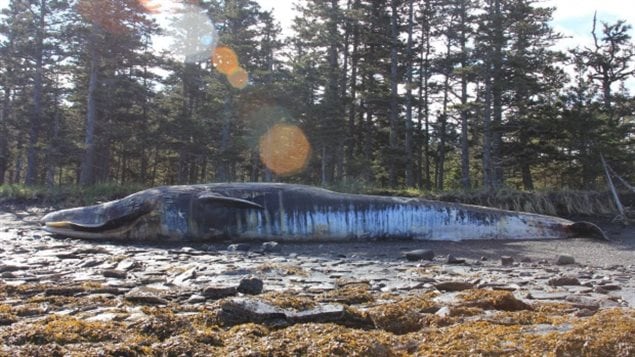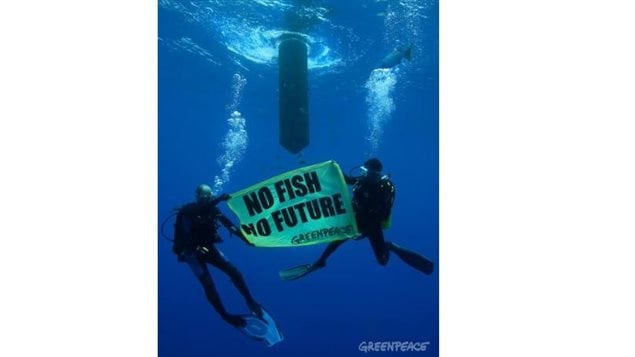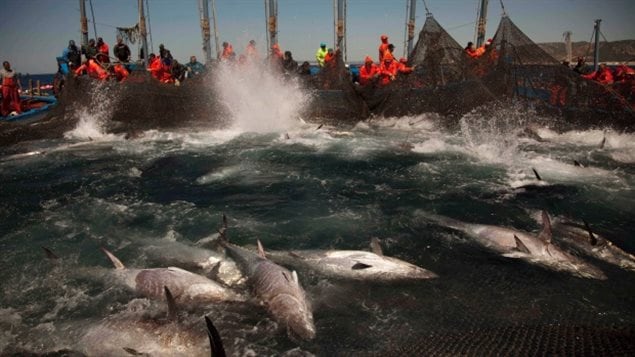A new report by the World Wildlife Fund international paints an extremely worrisome picture for the future of the oceans, and for humanity’s future.
The WWF report is called the “Living Blue Planet Report-species, habitat and human well-being”
In the opening line the report states, “Our ocean – that seemingly infinitely bountiful, ever awe-inspiring blue that defines our planet from space – is in crisis”
Almost 50% decline in marine populations in just 40 years
The WWF compiles a “Living Planet Index” (LPI) and in this report for marine species, it shows a decline in populations of 49 per cent between 1970 and 2012 (Figure 1).
The LPI for marine life is based on trends in 5,829 populations of 1,234 mammal, bird, reptile and fish species. The data included many more species and locations than its previous 2014 report being almost twice as large and giving an even clearer picture of ocean health — and the decline is even greater than previously described.

Nearly 3 billion people worldwide depend on fish as their primary source of nutrition. Millions of people all around the world also depend on fishing for their livelihood in a multi-billion dollar industry. As species decline and catches diminish, livlihoods and food supplies are increasingly threatened.
The United Nations Food and Agricutlure Organization has reported as far back as 2005 that 75 percent of the world’s fish stocks were already being caught at their maximum sustainable level, or were being overfished, or were already being depleted.

As an example, the UNFAO report of 2014 stated, “Catches of tuna and tuna-like species set a new record of more than 7 million tonnes in 2012. The annual global catch of the sharks, rays and chimaeras species group has been about 760 000 tonnes since 2005. In 2012, capture production of shrimp species registered a new maximum at 3.4 million tonnes, and the total catch of cephalopods exceeded 4 million tonnes.” http://www.fao.org/3/a-i3720e.pdf
BBC- 2012- Are we running out of fish
EESI- Aug 2015 -Ocean warming, algae, killing whales and seals
The Guardian- Sept 2015-bluefin tuna
Bloomberg News, June 2015- Chilean sea bass

“Our sense of the oceans’ power and omnipotence— combined with scientific ignorance— contributed to an assumption that nothing we did could ever possibly impact it,” writes contributing author, Kathy Auth who wrote the chapeter on Ocean resilience at risk “Over the years, scientists and environmental leaders have worked tirelessly to demonstrate and communicate the fallacy of such arrogance.

The Worldwatch report concludes: “There is no question that scholars and scientists who study the human economy, the Earth and the interactions between them are drawing profoundly troubling conclusions…It is time for Homo sapiens sapiens to live up to its somewhat presumptuous Latin name, and grow up.”
Worldwatch Institute- State of the world 2015- Video #3 of 8







For reasons beyond our control, and for an undetermined period of time, our comment section is now closed. However, our social networks remain open to your contributions.